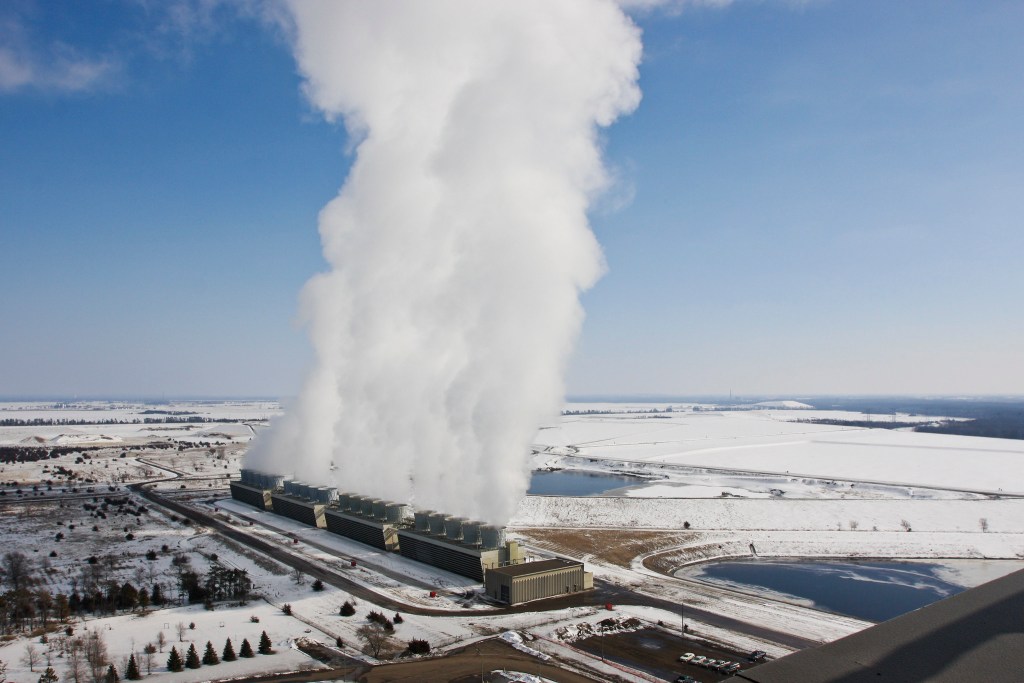In a significant development for the energy sector, BlackRock’s Global Infrastructure Partners (GIP) has secured regulatory approval for its over $6 billion acquisition of Allete Inc., a key utility provider based in Duluth, Minnesota. The deal, which will take Allete private, underscores the growing investor interest in utilities amid surging electricity demand from data centers, manufacturing resurgence, and the push toward electrification. Announced in May 2024 and led by GIP-managed funds alongside the Canada Pension Plan Investment Board (CPPIB), the transaction is poised to close by late 2025, providing Allete with access to substantial long-term capital to navigate Minnesota’s ambitious carbon-free energy goals.
Allete, which operates Minnesota Power and serves residential and commercial customers across the Upper Midwest, has been positioning itself as a supplier to the booming data center industry fueled by artificial intelligence advancements. The company’s CEO, Bethany Owen, emphasized the scale of the challenge during a September 25, 2024, MPUC meeting: “We will need to raise as much capital over the next five years as we have over the last 75.”
This acquisition is expected to shield Allete from public market volatility while enabling major investments in infrastructure to meet rising demand and state mandates for carbon-free power by 2040.
Minnesota Public Utilities Commission: A Unanimous but Contentious Approval
The Minnesota Public Utilities Commission (MPUC) played a pivotal role in scrutinizing the deal, ultimately granting unanimous approval on October 3, 2025.
As the state’s regulatory body overseeing utilities, the MPUC evaluated whether the transaction served the public interest, focusing on customer impacts, financial stability, and energy reliability. Chair Katie Sieben highlighted the benefits, stating, “We are bringing real value to Minnesota power customers,”while Commissioner Hwikwon Ham addressed data center concerns: “There is a perception that data centers will bring more harm to the ratepayers, but also potentially it can mitigate the risk we have.”
The approval process was far from smooth, facing opposition from consumer advocacy groups like the Citizens Utility Board of Minnesota, the Sierra Club, large power clients, and the state’s attorney general.
Critics argued that privatization could lead to higher bills, with an administrative law judge ruling in July 2024 that Allete had not sufficiently proven improved capital access under private ownership.
Despite this, the MPUC imposed protective conditions, including an immediate reduction in Allete’s authorized return on equity (ROE) from 9.78% to 9.65% post-closing, with a cap at 9.78% through 2030.
These measures aim to safeguard ratepayers from potential cost hikes. Supporters, including the Minnesota Department of Commerce and some labor unions, praised the deal for enhancing investment in clean energy transitions.This decision reflects broader tensions in utility regulation, where private equity’s role—often criticized for prioritizing returns over public good—is weighed against the need for massive capital inflows.
GIP, now a BlackRock subsidiary, will hold a 60% stake in Allete, with CPPIB owning the remainder.
Investment Opportunities Stemming from the Deal
The Allete acquisition highlights opportunities in the utility and infrastructure space, particularly as electricity demand surges from AI-driven data centers and electrification trends.
BlackRock Inc. (NYSE: BLK) stands out as a prime beneficiary, with its GIP unit expanding aggressively into energy assets. The firm is in advanced talks for a $40 billion deal for Aligned Data Centers and a $38 billion acquisition of AES Corp. (NYSE: AES), which includes renewables, natural gas, and utilities in Indiana and Ohio.
AES, with its diverse portfolio, could see upside from similar demand drivers, making it a solid pick for investors eyeing utility growth. Other promising investments include data center-focused REITs like Digital Realty Trust (NYSE: DLR) and Equinix (NASDAQ: EQIX), which are capitalizing on the AI boom and could benefit indirectly from utility expansions like Allete’s.
In Minnesota, Xcel Energy (NASDAQ: XEL), a major player in the state’s energy market, may gain from regional synergies and the push toward carbon-free goals. Broader infrastructure funds, such as those managed by BlackRock or GIP’s peers, target 15-20% gross returns and offer exposure to these trends.
However, critics warn of risks in private equity-owned utilities, including potential rate increases to meet high return targets.
Investors should consider these alongside the sector’s strong fundamentals.
Minnesota’s Electricity Costs in Context
Minnesota’s average residential electricity rate hovers around 14-15 cents per kilowatt-hour (c/kWh), positioning it well below the national average of approximately 17 cents/kWh and far from the top 10 most expensive states.
This affordability stems from a mix of coal, nuclear, and renewables, bolstered by regional resources.In contrast, the top 10 states with the highest average electricity prices (based on 2025 data) are dominated by coastal and island regions with high import costs and regulatory burdens:
|
Rank
|
State
|
Average Rate (c/kWh)
|
|---|---|---|
|
1
|
Hawaii
|
39-41
|
|
2
|
California
|
32-33
|
|
3
|
Massachusetts
|
28-30
|
|
4
|
Rhode Island
|
27-29
|
|
5
|
Connecticut
|
27-28
|
|
6
|
Alaska
|
22-24
|
|
7
|
New York
|
21-23
|
|
8
|
New Hampshire
|
20-22
|
|
9
|
Vermont
|
19-21
|
|
10
|
Maine
|
19-20
|
Minnesota ranks around 20-25th nationally, benefiting from lower costs that could attract more data centers and industries, potentially amplifying the value of deals like Allete’s.
This competitive edge supports the state’s growth as a data center hub, as noted in the MPUC discussions.
As the energy landscape evolves, this deal could set a precedent for private investment in utilities, balancing innovation with consumer protections. Stay tuned to Energy News Beat for more updates on these transformative shifts.
Have you calculated your Tax Burden in 2025?
Crude Oil, LNG, Jet Fuel price quote
ENB Top News
ENB
Energy Dashboard
ENB Podcast
ENB Substack

